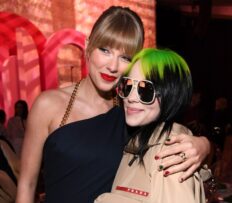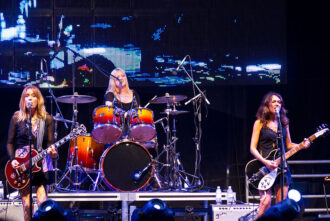Background
I love music! It could be a real career option for me. Whether that’s in writing, production or performing (less likely). I’m not sure yet, but, as a young female, what I need to know is, is it a safe bet? Will I be treated equally and fairly and not suffer prejudice based on my gender? Is gender inequality still an issue in the music industry today?
What even is gender inequality? According to the European Institute for Gender Equality, it is a legal, social and cultural situation in which sex and/or gender determine different rights and dignity for women and men, which are reflected in their unequal access to or enjoyment of rights, as well as the assumption of stereotyped social and cultural roles. Put simply, it is the social phenomenon in which men and women are not treated equally.
On first glance of social media platforms, you would be forgiven for thinking that gender inequality is no longer an issue in the music industry. It seems that there are many successful female artists in the business, perhaps more visible than ever. Rihanna, Ariana Grande, Cardi B, Lizzo, Taylor Swift, Billie Eilish are a few who have reached high mainstream success. However, the percentage of women in music overall has been in a steady decline. From 2019 to 2020, female artists fell from 22.5% to 20.2%; female songwriters decreased from 14.4% to 12.9% and as of June 2021, only 2% of producers making music were women, meaning that male producers outnumber female producers 47 to 1!
“It is International Women’s Day everywhere except for women in music, where women’s voices remain muted” – Dr Stacy L. Smith (foremost disrupter of inequality in the entertainment industry). Women make a fantastic contribution to the music industry, but are far too often not sufficiently acknowledged or celebrated.
So this leads us to ask the question ‘Does gender affect the everyday experiences of all musicians within the context of the music industry?’

Statistics and the gender divide
Ebony Bones (English singer, songwriter and producer) has expressed the worries associated with this alarming gender divide: “I think it can be discouraging if a young girl has aspirations of wanting to go into production and looks at the Grammys, well there’s no-one female and there’s no-one who looks like me. Why do I think that I can be successful in that area?”

It is evidently vital that more women are in the music industry, especially within leadership and decision-making based roles, as music is closely observed by the world’s youth and often provides them with role models. Changes in this industry could set high-visibility examples of equality and facilitate transformation in other areas too. Looking more closely at some of the evidence, it appears that the music industry does indeed still have a significant issue with gender inequality.
As can be seen from the shocking statistics in the chart above, with the exception of Best New Artist, male nominees significantly outnumber their female peers. This is not just a US problem. Out of 25 available slots in mixed-gender categories at the Brit Awards in 2020, only one British female artist was nominated. It must be indicative of a wider industry problem. However, after much criticism, this improved to ten female nominees in 2021and in 2022 the Brits became the first awards to abandon gender-based categories, providing some hope for the future! That said, as at January 2020, only 8% of inductees (69 out of 888) into the Rock and Roll Hall of Fame were women. On being inducted herself, Janet Jackson demanded that the Hall “please … induct more women”.
The Reading and Leeds festival have been criticised year on year for the lack of women artists on their line-ups. Nearly 100 acts play the festivals over 3 days. The harsh reality is that, in one year, just 9 featured a woman in their line up, meaning dozens were entirely male. When the 2021 line-up was announced, an online petition called on festival organisers to rethink and add more women. The petition stated: “There is a fundamental problem in the music industry with male artists being favoured over female artists, and this problem has rooted itself deeply into festival line-ups”. More widely, fewer than one in 10 headline slots were found to be filled by female artists at 10 of the UK’s biggest festivals.
Women often occupy the majority of low status and or entry level positions, so in an already underpaid sector, women make even less money. Examining statistics on the Music Business Worldwide website shows that, in the top earning bracket at Universal Music UK, only 26% of employees were women, whilst in the lowest-paid bracket 53% were women. As of 5th April 2020, all three major record companies in the UK recorded mean average gender pay gaps: 29.2% at Universal Music UK, 25.4% at Sony Music UK and 30% at Warner Music UK. When it comes to bonuses, female executives were paid 49.6% less on average than their male counterparts at Universal, 50.4% less at Sony and 56.9% less at Warner!
Representation
Could you name 20 female fronted rock bands that have had worldwide success? Queen, Nirvana, ACDC, Pink Floyd, The Rolling Stones, Green Day, Metallica, Led Zeppelin, Sex Pistols, Ramones, The Stone Roses. The list is endless for all male bands, not so much for female fronted bands, let alone all women bands. The well-known saying “sex, drugs and rock and roll” conjures up a particular image of a male rock star with women as a resource, often seen as ‘groupies’.
There are of course a number of all- women bands, who should be applauded. For example, The Bangles and The Go Go’s. Similarly, there are also a number of female fronted rock bands (Joan Jett and the Blackhearts, the Cranberries, The Pretenders and Blondie), but unfortunately, they are far outnumbered. With exceptions, women tend to be associated more with a ‘softer’ brand of pop music, rather than rock (such as the Spice Girls, Girls Aloud and Little Mix).

Discrimination
It is difficult to write this article without also mentioning another major problem within the music industry – objectification and sexual harassment. A survey published by Forbes found that objectification and sexual harassment are some of the main roadblocks women face in the music industry. Of the 401 female creatives interviewed, 64% named gender-based harassment as an issue. There are countless songs with a demeaning nature of lyrical content (e.g. Blurred Lines by Robyn Thicke) and videos where women are undoubtedly objectified. However, this is a whole other article with too much content to cover here, but it can’t be anything but connected.
There are numerous studies highlighting gender inequality. For example, a study from the Music Industry Research Association & Princeton University found that 72% of women had experienced discrimination based on their gender.
Many music sectors have a certain degree of horizontal sex segregation, meaning that there are limited opportunities for one gender, in this case women, in certain departments and sectors (e.g. management or production) as they are dominated by the other (male) gender. As a result, women are primarily considered qualified for roles such as vocalists while men are more likely to write music/lyrics, be producers and fulfil the role of technicians (generally positions with more power). A 2020 study by the University of Southern Carolina showed that only 12.9% of songwriters are women. Even more astoundingly, in music production, women make up less than 3% of producers and engineers.
This can lead to something known as the “smurfette principal/effect”, where men are the norm and women are the exception. When faced with each other, women can then be negatively affected and can become territorial, as if that other woman is going to take away something that you fought for. This is unconsciously contributing to the gender imbalance within the music industry by women keeping other women at arms length.
Solutions
In conclusion, it is evident that gender inequality has and continues to be a major issue in the music industry. But is there hope for improvement? Is there a solution? Perhaps if more men speak out and call for gender equality, just as the all-male band The 1975 once did at the Brits, things will start to change for the better?
Non profit organisations like Women in Music, Sound-girls and Girl-school help support women in the music industry through much needed education, support and social recognition. They are created for the purpose of female empowerment and recognise female artists and producers thus tackling under-representation.
Gendered attitudes in music journalism, promotion and production also need to change. Studies have shown that female pop artists have received far less (around 20%) newspaper attention than men between 1975 to 2005.
CEO’s/label managers/producers can encourage more female talent to come forward. More women can subsequently inspire many other women to continue into a male dominated field despite the odds.
Hopefully, with more and more people speaking out and challenging the industry, which is certainly made more possible with social media, the recent phenomenon of companies having to publish their gender pay gaps and awards ceremonies increasingly becoming gender neutral, “a change is gonna come” (Sam Cooke).
By Isabelle Martin